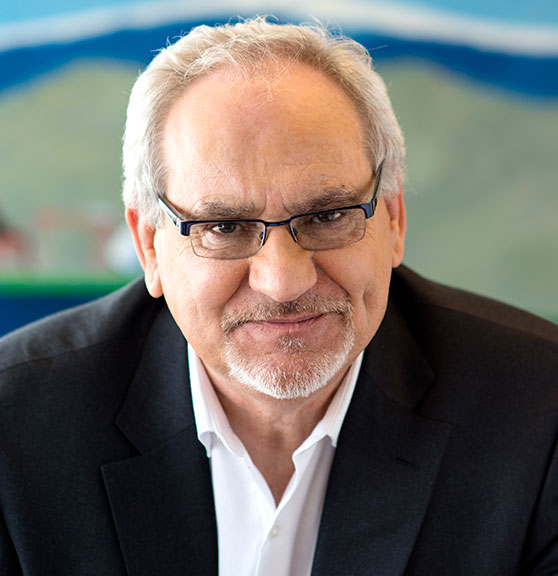The Role of Banks in Africa’s Digital Future
Banking in Africa is on the brink of its next transformative era, writes Mpumi Makhubu-Mukogo.
Africa has demonstrated its propensity for embracing new technologies, particularly in the financial services sector. With about eight in 10 people on the continent owning mobile phones and more than 570 million people online in 2022, up 470% from 2010, access to information and services has become easier.
Now more than ever, digital access to financial services in Africa is imminent. However, we must solve the infrastructure challenges, collaborate more and strengthen institutional connections.
There is a tremendous opportunity to apply lessons learnt from mobile money adoption.
To remain relevant, banks and central banks must evolve to embrace and adopt the opportunities presented by new technologies such as blockchain, mobile money and cloud computing. However, new opportunities also come with risks, which require updated regulations that are effective but do not stunt innovation, especially those that are being driven by fintech start-ups. Fintechs should not be seen as threats to the banks, but as partners that could help established players meet the needs of customers.
Read also : Africa People Advisory Group Releases 2023 Employee Experience Study
On a continent where physical cash still accounts for more than 70% of transactions, there is a tremendous opportunity to apply lessons learnt from mobile money adoption and get more people into the banking economy in a safe and accessible way.

Mobile money is among the fastest-growing payment methods in Africa, and we can make the next exponential step by leveraging it beyond just payments or peer-to-peer transactions. Africa has a young, digital-native and rapidly urbanising population. The continent is a hotbed of start-ups and fintechs helping solve financial challenges, and many countries and territories are easing regulations to speed up technological banking adoption.
Role of banks
We need to embrace technology as we always have, while learning from other early adopters to produce the best new-age solutions for our customers. Mobile money solutions have vast potential to evolve into more complete banking products, including lending, saving and investing – and banks must lead that charge.
There is arguably no market in which the growth of – and demand for – more inclusive and accessible financial services is more prevalent than in Africa. Our rapid commercial growth and globalisation over the past decade have made more inclusive financial services even more critical. The growth of SMEs and entrepreneurship, and accompanying innovation in fintech – particularly blockchain technology – has the potential to drive the improvement of financial infrastructure across the board.
Another key area that needs development is efficient and lower-cost cross-border payments to facilitate intra-African trade as well as trade outside the continent. One solution which seeks to address the intra-Africa need is the pan-African payment and settlement system, or PAPSS, which enables cross-border instant payments across African countries, without the complexity, time and money it takes to make these payments using traditional banking methods.
With PAPSS, participants do not need to first convert local currency to a hard currency like the US dollar as an expensive, time-consuming intermediary step when making a payment to a participant in another African country. Wide adoption of PAPSS across the continent will revolutionise payments and contribute towards economic growth. For this reason, Standard Bank South Africa has signed a memorandum of understanding to provide settlement of these transactions. It also aims to be a participant bank in most of the markets it operates in.
Read also : Moniepoint, Nigerian Fintech Startup Ventures Into Personal Banking
Meanwhile, several African countries have seen a rapid uptake of cryptocurrencies as a means to access more efficient payment rails provided by blockchain networks and yield returns on income with assets such as bitcoin and stablecoins, which are designed to maintain stable value through being pegged to an asset such as the US dollar.
Because of the volatility of cryptocurrencies, the real potential for increased financial inclusion in Africa lies in the blockchain infrastructure that underpins them, rather than in the currencies themselves – stablecoins aside. The distributed ledger system can instantly eliminate fraud and human error in transactions and foster transparency in financial records, which can enable the creation of corruption-resistant and robust welfare systems.
It can also provide mechanisms for fair and transparent microfinance and increased purchasing power to support the creation and growth of small enterprises that serve communities. Blockchain technology can kick-start new trade opportunities between nation states and give Africans the opportunity to take part in a technological revolution and form part of the decentralised economy.
Where does that leave traditional banking? It’s clear that the answer is not to compete with fintechs, but rather to use new technologies through participating in our own right, and via partnerships.
The distributed ledger system can instantly eliminate fraud and human error in transactions and foster transparency in financial records.
Digital banking solutions that will matter now and in the future are those built by not only leveraging emerging technology, but through collaboration between traditional incumbent banks, central bank regulators and fintechs in solving the challenges that inhibit access to financial services in and outside of Africa at true scale.
Read also : Digital Payment Service PayShap Closes in on a Million Transactions
Ultimately, the aim is to contribute towards sustained economic growth and development in Africa, and we are likely to move towards this faster through partnerships with the fintech start-ups and mobile network operators that are often more innovative and agile in solution delivery. By layering a culture that supports agility and measured risk-taking on top of a base of sound technologically innovative solutions, we can set the true potential of Africa alight.
Mpumi Makhubu-Mukogo, is global markets digital head at Standard Bank
Kelechi Deca

Kelechi Deca has over two decades of media experience, he has traveled to over 77 countries reporting on multilateral development institutions, international business, trade, travels, culture, and diplomacy. He is also a petrol head with in-depth knowledge of automobiles and the auto industry



